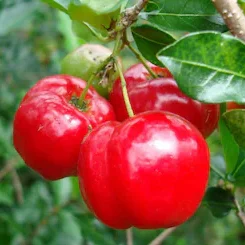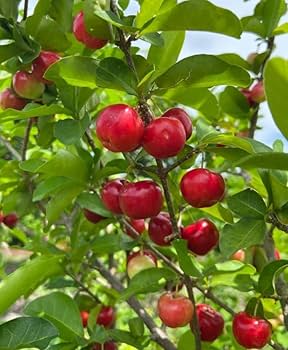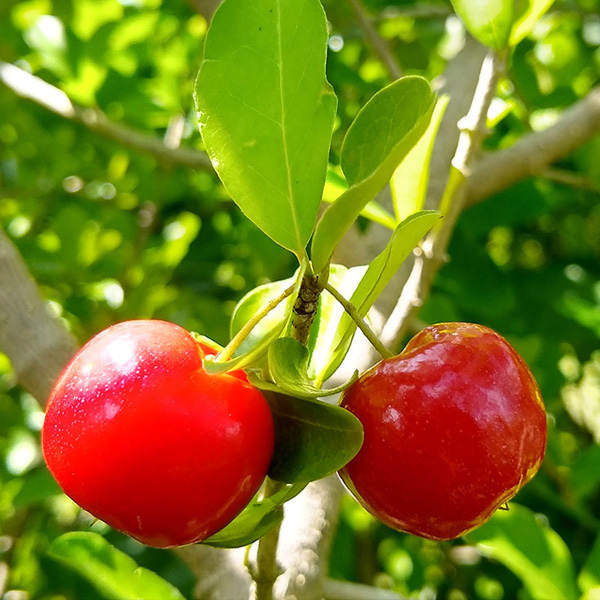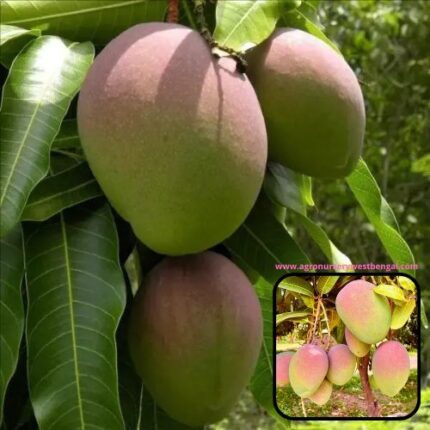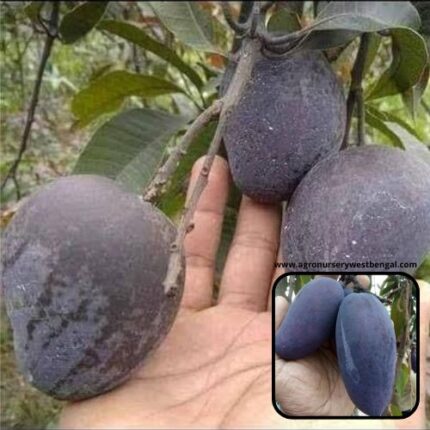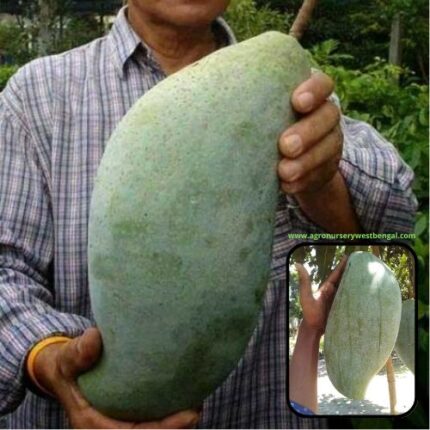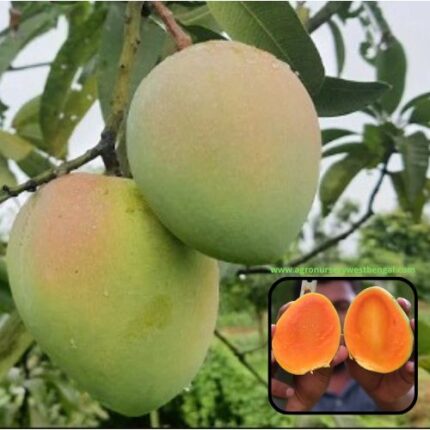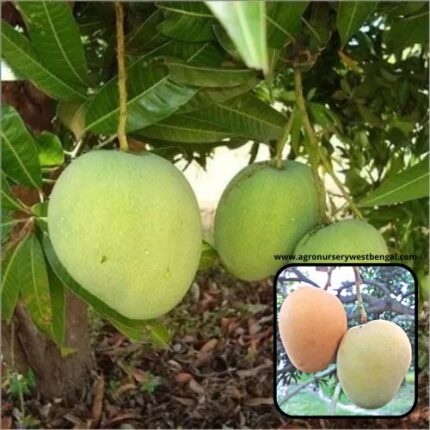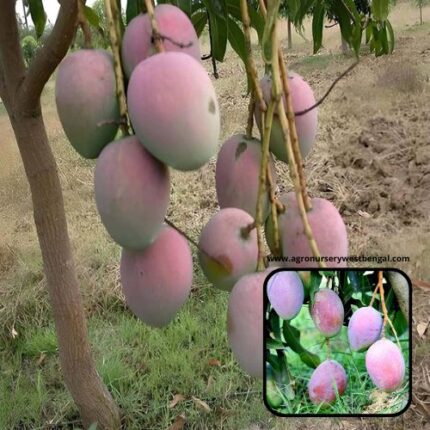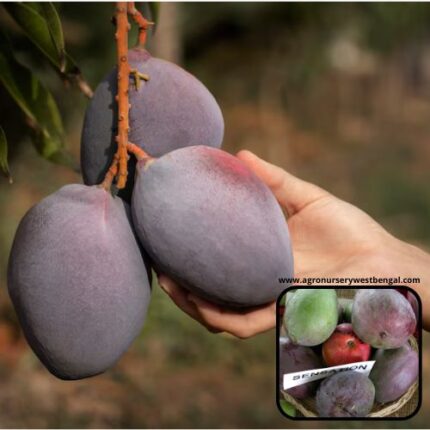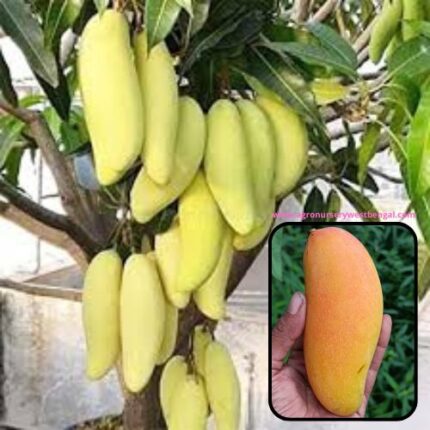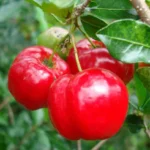
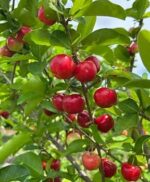
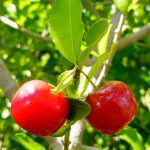
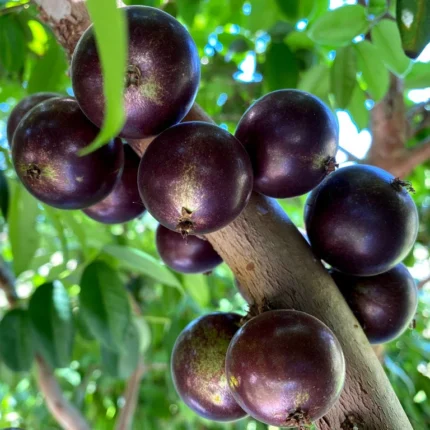
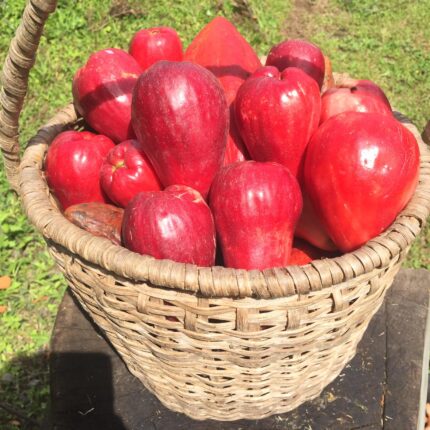
Barbados Cherry fruit plants
₹899 Original price was: ₹899.₹469Current price is: ₹469.
The Barbados Cherry is a fascinating and highly nutritious fruit, widely recognized for its extraordinarily high Vitamin C content. It’s known by several other common names, including Acerola, West Indian Cherry, and Wild Crepe Myrtle. Its scientific name is Malpighia emarginata (though Malpighia glabra is also sometimes used, primarily referring to a wild/ornamental species).
Here’s a detailed description of the Barbados Cherry fruit:
-
Appearance:
- Shape and Size: These are small, round to oblate (slightly flattened) berries, resembling miniature true cherries. They typically range from 1 to 3 centimeters (0.4 to 1.2 inches) in diameter.
- Skin (Rind): The skin is very thin, smooth, and glossy. It’s quite delicate and bruises easily. The color ripens from green to yellow, then to a vibrant bright red or crimson when fully mature. Some varieties might have a slightly orange or yellowish tinge.
- Internal Flesh: The flesh beneath the thin skin is juicy, soft, and somewhat pulpy. Its color is generally orange-red.
- Seeds: Each fruit contains 2 to 3 small, hard, yellowish, and somewhat triangular-shaped seeds that are often loosely encased in the pulp. These seeds are usually discarded.
-
Taste and Texture:
- Taste: The flavor of Barbados cherry is a distinctive sweet-tart, with a tangy and often fruity or slightly citrusy note. It’s often described as having a mild apple-like flavor or a combination of cherry and citrus. The tartness is more pronounced when the fruit is slightly under-ripe, which is often when it has the highest Vitamin C content. As it ripens, the sweetness increases.
- Texture: The flesh is juicy and succulent, with a soft, delicate texture. It can be quite perishable due to its tenderness.
-
Botanical Characteristics and Origin:
- Barbados Cherry grows on a fast-growing, bushy, evergreen shrub or small tree, typically reaching 3-4 meters (10-13 feet) in height, though it can grow taller.
- It produces delicate, small, pink or rosy flowers that appear periodically, often from April to October in tropical climates, with fruit developing about a month later.
- It is native to the West Indies (including Barbados), southern Mexico, Central America, and northern South America. It thrives in tropical and subtropical climates and is relatively adaptable to various well-drained soils.
-
Seasonality:
- In tropical regions, Barbados cherry trees can flower and fruit multiple times a year, providing several flushes of fruit, often throughout the summer and into early winter. This continuous fruiting makes it a valuable addition to gardens.
-
Nutritional Value and Health Benefits:
- This is where the Barbados Cherry truly shines. It is exceptionally rich in Vitamin C (ascorbic acid). It contains significantly more Vitamin C than oranges – often 30 to 100 times more, depending on the ripeness and variety.
- Beyond Vitamin C, it also contains Vitamin A (carotene), B-complex vitamins, and minerals like potassium, magnesium, calcium, and iron.
- It’s packed with antioxidants (including anthocyanins, flavonoids, and phenolic compounds) that contribute to its anti-inflammatory properties and help protect against cellular damage.
- Due to its high Vitamin C content, it’s widely consumed to boost immunity, prevent scurvy, support skin health (collagen production), and for its overall antioxidant benefits. It’s often used in commercial vitamin C supplements.
-
Culinary Uses:
- Fresh Eating: Most commonly enjoyed fresh, straight from the tree. Its delicate nature means it doesn’t store well and bruises easily, which is why it’s not widely found in regular supermarkets outside its growing regions.
- Juices and Smoothies: Due to its high juice content and tart-sweet flavor, it’s excellent for making refreshing juices, syrups, and smoothies.
- Jams, Jellies, and Preserves: The fruit’s natural pectin content and flavor make it suitable for preserves.
- Sauces and Desserts: Can be used in fruit sauces, sorbets, ice creams, and other desserts where its unique tartness and high vitamin content are valued.
The Barbados Cherry is a small but mighty fruit, highly prized for its incredible nutritional density, particularly its unparalleled Vitamin C content, and its refreshing sweet-tart flavor.

